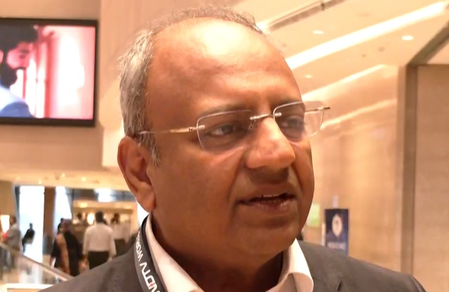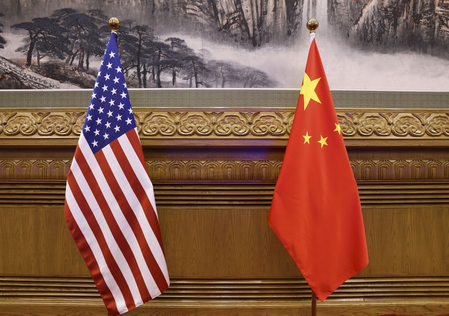World Hindu Economic Forum opens in Adelaide with landmark Indigenous partnership and multisector dialogue

Business leaders, policymakers and innovators from more than 30 countries converged on Adelaide’s Convention Centre yesterday for the inaugural day of the World Hindu Economic Forum (WHEF) 2025, where a landmark agreement with Aboriginal entrepreneurs and a packed agenda of sector-wide panels set the tone for inclusive growth under the banner “Empowering growth: prosperity, innovation & sustainability.”
In his opening remarks, WHEF 2025 organising committee chair Rajendra Pandey announced a memorandum of understanding between WHEF and the Aboriginal Business Council.

“Under this agreement, we will collaborate on mentorship programmes, joint workshops and investment initiatives to uplift communities and entrepreneurs across South Australia,” he said, thanking Multicultural Affairs Minister Zoe Bettison and Trade Minister Joe Szakacs for their support in making the partnership a reality.
– Advertisement –
Pandey noted that Hindu Australians are “leading enterprises in finance, technology and agriculture, driving key projects in education, healthcare and the creative industries” and added that through volunteerism and philanthropy they are “reinforcing the multicultural fabric that underpins our nation.”


Keynote speaker Swami Vigyananand, founder and chairman of WHEF and Joint General Secretary of the Vishva Hindu Parishad, urged delegates to view entrepreneurship as a moral imperative.
“Entrepreneurship lies at the heart of Hindu philosophy, driving inclusive growth through local, national and global market access,” he said, invoking his recent book The Hindu Manifesto to illustrate how business can serve society’s most disadvantaged.


He described WHEF as “a collaborative platform that develops human resources, applies shared knowledge to solve global challenges and creates lasting value,” and called on the community to “accelerate the adoption and integration of technology for a competitive edge.”
Minister Bettison used her address to highlight South Australia’s booming visitor economy, which she said has reached a record A$10 billion, thanks in part to cultural exchange.
“I’m delighted to see such a thriving Hindu community choosing South Australia as their business home,” she said, inviting investors to bring expertise in pharmaceuticals, space science, wine production and tourism to Adelaide.
– Advertisement –


“This really is the place to be,” she added, praising the local Hindu community for “opening their hearts and sharing their culture.”
She closed by celebrating India’s rising economic power:
“We can all look forward to India becoming the world’s third-largest economy very soon.”
Minister Szakacs followed with a focus on defence, renewable energy and critical minerals, declaring that “our collaboration is vital to delivering clean-power solutions and building skills that meet tomorrow’s challenges.”


He reiterated the state government’s commitment to backing India as it “diversifies its supply chains and advances its defence capabilities,” and applauded companies such as HCL for “creating thousands of jobs here – they are now among our largest employers.”
He drew warm applause when he connected the forum’s spirit to cricket, saying:
“From Sachin Tendulkar’s greatest innings to the electric atmosphere at the Adelaide Oval, our shared passion for the game reminds us of the bonds that unite us.”
Shadow Education Minister John Gardner emphasised the contributions of Hindu Australians in academia. “Hindu Australians have enriched our schools and universities as both educators and learners, bringing fresh perspectives and a spirit of innovation,” he said.








He welcomed new bipartisan support for a direct Adelaide–India flight, predicting it will “open up tourism and strengthen business ties,” and highlighted the diaspora’s potential to help establish “world-class AI and cyber centres right here in Adelaide.”
The conference’s first panel, moderated by Senator Andrew McLachlan, examined the Australia–India Comprehensive Economic Cooperation Agreement as a vehicle for defence and strategic cooperation.
Defence SA CEO Mat Opie noted “there’s a boom in the defence industry sector” and urged joint ventures.


India’s High Commissioner Gopal Baglay encouraged Australian investment in India’s renewable-energy expansion and critical-minerals value chains, describing the bilateral relationship as “magic” built on “shared economic objectives and convergence.”
Dr Sanjay Mazumdar of Defence Trailblazer outlined a A$240 million South Australian fund to train an AI and cyber-security workforce, saying “we’re creating the next-generation talent to give our forces their competitive edge.”
In the health session, chaired by Vyantra CEO Saurabh Mishra, Care 24-7 founder Dr Sharad Pandit described a telehealth and mobile-physician model that “has cut hospital transfers by 30 per cent and brings emergency care to the doorstep.”






Jiva Ayurveda CEO Madhusudan Chauhan argued that “affordable, preventive care begins with time-tested therapies,” while Skanray Technologies founder Vishwaprasad Alva asked rhetorically, “Why should an ultrasound cost A$500 000 when we can build one for under A$50 000?”
The panel agreed that scaling affordable services requires regulatory harmonisation, local manufacturing and blended public-private financing.
The third session, chaired by former University of Wollongong vice-chancellor Patricia Davidson, focused on international education. University of Adelaide deputy vice-chancellor Jessica Gallagher unveiled the new Adelaide University—“opening January 2026 with 180 years of experience, A$2 billion in revenue, 5,000 researchers and 7,000 industry partners”—as “an engine room for Indo-Pacific growth.”
Delhi University’s Prof Balaram Puri warned that “overlapping regulations in Australia and India act as a brake on swift decision-making” and urged joint committees to streamline visas and credit transfers.








Closing the day, a panel on resilient business leadership, moderated by Sunway University vice-chancellor Mahendhiran Sanggaran, championed a nature-centric “8R” approach to industry: respect, rethink, reduce, reuse, recycle, restore, repurpose and revitalise.
Nepal’s Pradeep Man Vaidya described Nepal as “the cradle of Hindu philosophy,” arguing that “integrating social harmony and environmental stewardship unlocks sustainable growth.”








WHEF 2027 organiser Kush Kumar Joshi previewed Kathmandu’s upgrades for the next forum, while Mumbai host Swadesh Khetawat outlined plans for WHEF 2026 to showcase urban sustainability projects and green-hydrogen innovation.
On behalf of WHEF Australia, managing director Sivakumar Krishnan offered a vote of thanks: “To our speakers, partners, sponsors and volunteers—your insights and support have been invaluable. And to our delegates, your energy and ideas have truly embodied ‘empowering growth.’”






Day 2 will feature interactive workshops on financial technology, agritech, women’s entrepreneurship and public-private financing, along with site visits to Adelaide’s leading innovation precincts.
Support our Journalism
No-nonsense journalism. No paywalls. Whether you’re in Australia, the UK, Canada, the USA, or India, you can support The Australia Today by taking a paid subscription via Patreon or donating via PayPal — and help keep honest, fearless journalism alive.





